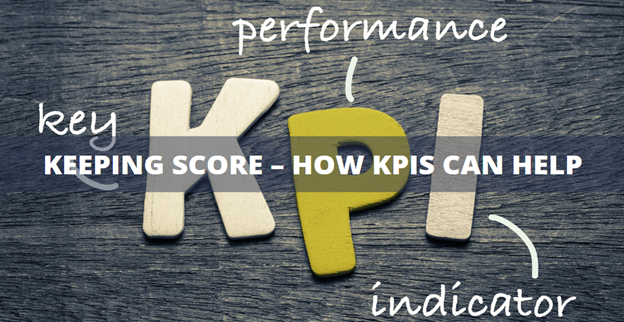Solving IRS Challenges and Building Smarter Tax Strategies
Taxes are unavoidable, but how you plan for them, and how you handle challenges with the IRS, can...

Sometimes keeping score isn’t fun. When you aren’t winning or your business isn’t growing as fast as you think it should be, it can be very disheartening. But that doesn’t mean it’s not important to do regardless. Financial modeling and forecasting are crucial to knowing where you want to improve performance and focus your time and energy.
When building a financial forecasting model for your business, it is best to determine the key performance indicators (KPIs) that you want to track and focus on them. In a recent blog, A Solution to Flying Blind, I explained the value of having a good forecasting model to help you maneuver the ever-changing business environment.
KPIs are a key component of this forecasting model because they are your score. They help you know if you are improving and can provide additional motivation and excitement for your team. I think for some entrepreneurs, the term “KPI” can be vague, so I want to explain 5 reasons that you need to review KPIs regularly in your business.
One of the key components in setting and meeting your goals is to make sure they are measurable. I am guessing that you have a revenue and profit target, but is that specific enough? Once the revenue is broken down by product, service line, customer, location, or any other profit center, it is a KPI that can (and should) be measured.
One way to make sure your goals are measurable is to learn how to set SMART goals. A SMART goal is one that is specific, measurable, actionable realistic, and time-bound. If you can set goals that meet these criteria and have the KPIs to back you up, you’ll spend less time disappointed about missing unachievable goals and more time focused on how to grow your business.
When we focus on what is relevant, then we know we are doing the activities that are most important to hitting our goals. This may seem simple, but it is also profoundly important.
If we have a goal to hit such as a certain amount of new revenue but we fill our day up with distractions that don’t help us achieve that goal, then we can get into trouble. If we are trying to get 5 new clients, then we should measure things that contribute to that goal; things like contacts, pitches, RFPs, referrals, close rate, etc. By doing so, we can adequately measure what we are doing to hit the new revenue goal and adjust if necessary.
Measuring and reviewing KPIs is nothing new. In fact, it is a best practice among all kinds of businesses. Bernard Marr wrote a LinkedIn post way back in 2013 that I think still rings true today called “The 75 KPIs Every Manager Needs To Know.” It is a very thorough list broken down by financial, customer, marketing, operational, employee performance, and environmental categories.
I wouldn’t advocate every company tracking all of these, as they aren’t applicable to every industry or goal. Instead, look at 10 of these metrics along with other measurements that are very specific and relevant to the goals you want to reach this year. Keep an eye on these metrics so that you can understand the important dimensions of your business and make informed decisions about the future.
I know that I am a bit of a numbers nerd, so this might seem like a ludicrous statement to you. Why do I say it is fun? If we have a benchmark and we communicate this to our team and we exceed it, how much fun is that? It is much more fun to celebrate hitting this milestone that everyone set out to hit. Meeting goals is just simply rewarding.
Some of you might say that if you don’t hit a goal, it’s depressing and could hurt employee morale. That might be the case in the short term, but if you can pivot and use that, you’ll find a team that is laser focused and working hard to hit the goal later. How much better is that for morale?
Measuring KPIs and comparing them to prior months or industry benchmarks can point you in the right direction or keep you from running into a financial challenge. The following are situations where KPIs can be used to forecast and get ahead of significant challenges and serve as a great examples of how to implement KPIs in your company:
In summary, KPIs in a financial model are important because they ensure we are measuring our goals and spending time on relevant activities. Further, using KPIs is a tried-and-true best practice that can serve as a fun way to boost morale and keep your business out of trouble.
KPIs are important, but they are by no means an easy thing to grasp or implement. There is a considerable amount of research, knowledge, and experience in this field and not every business owner has the time to dive into that rabbit-hole.
That’s where Bender CFO Services can help. Feel free to contact us so that we can discuss the challenges facing your business and how we can implement KPIs to improve your modeling and forecasting.
Taxes are unavoidable, but how you plan for them, and how you handle challenges with the IRS, can...
When I was a teenager, we had a dry erase board in our kitchen where we would write funny quotes....
You have probably heard the expression “Flying Blind” and maybe you have seen it used in the broad...